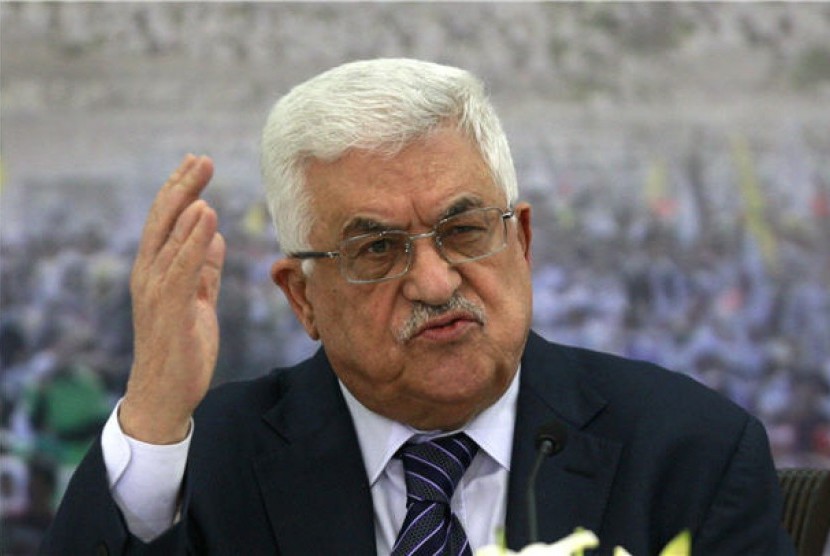REPUBLIKA.CO.ID, JERUSALEM - With pessimism growing by the day over the future of Middle East peace talks, US President Barack Obama will meet Palestinian President Mahmoud Abbas in Washington on Monday to try to break the stalemate.
The deadline for the negotiations between Israelis and Palestinians, aimed at ending their entrenched conflict, expires next month and Washington is eager to persuade the two sides to prolong their discussions within a new framework. But expectations of imminent progress are minimal.
After eight months of initial talks, and at least 10 trips to the region, U.S. Secretary of State John Kerry sounded unusually gloomy during a Congressional hearing on March 12, indicating that little progress had been made so far.
"The level of mistrust is as large as any level of mistrust I've ever seen," said Kerry, a veteran of Middle East diplomacy. "Neither (side) believes the other is really serious. Neither believes that ... the other is prepared to make some of the big choices that have to be made here."
However, he said it was still possible to extend the talks.
Obama's direct involvement is aimed at providing much needed additional impetus: he saw Israeli Prime Minister Benjamin Netanyahu earlier this month, and is now meeting Abbas.
Israelis and Palestinians have been holding on-off negotiations for more than 20 years with the stated aim of sharing the Holy Land and creating an independent Palestine. Through all that time, the main, unresolved issues have remained exactly the same - defining the borders and agreeing on security, the status of Jerusalem and the fate of Palestinian refugees displaced during the 1948 creation of Israel.
Obama told Netanyahu he would seek "difficult decisions" from Abbas in coming weeks and would push him behind closed doors as hard as he did the Israeli premier to help narrow the gap for a framework accord, a senior US official said.
Obama will also tell Abbas that "we should not let this current window for peace close" and will make the case for the benefits of peace to the Palestinian people, the official said.
Although the terms of the mooted accord have not been published, Palestinians say early indications suggest they will be offered less than what former US President Bill Clinton laid out in 2000 in the so-called Clinton Parameters.
The president's aides have made clear that Obama wants the framework document to be seen as even-handed, despite the sense among many Palestinians that Washington is favoring Israel.
Frustration
Besides the so-called core issues, other hurdles to a deal have also emerged, particularly Netanyahu's demand that Abbas recognizes Israel as a Jewish state. Israel says this would show he was serious about ending the conflict, but the Palestinians say it would merely destroy their own narrative. Abbas says accepting it would effectively deny his own people's centuries-old links to the land and would also mean renouncing the right to return for some 5 million Palestinian refugees and their descendants.
Washington has endorsed the Israeli position but, perhaps revealing a frustration with Netanyahu, Kerry told the House Committee on Foreign Affairs on Thursday that it was a "mistake" to raise the issue repeatedly "as the critical decider."
Adamant not to give in on this point, Abbas also faces pressure at home not to agree to any loosely worded accord that would simply prolong negotiations, with no clear end in sight. The Palestine Liberation Organization (PLO), which is chaired by Abbas, issued a statement this week expressing its "absolute rejection" of any prolongation.


